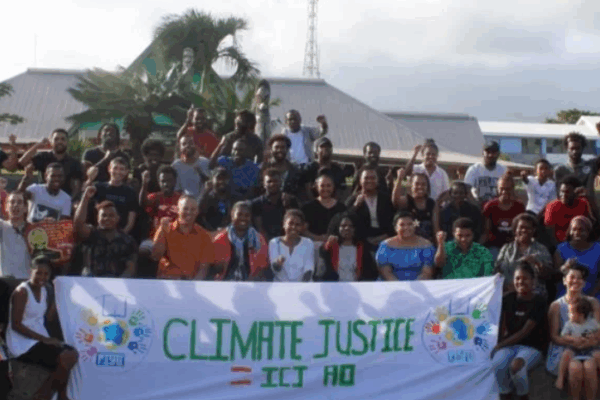Opportunity Green x Cornerstone Climate: ICJAO Outcomes and Implications (Part of Cornerstone Climate Month)
Speakers
Estelle Dehon KC, Joie Chowdhury, Dominika LeitaneVenue
ZoomFee
Free
Today (23 July) the International Court of Justice (ICJ) published its Advisory Opinion (AO) on Obligations of States in respect of Climate Change, which is available here.
The ICJ was the only principal organ of the UN system which had not yet contributed to the climate crisis legal framework. In March 2023, as a result of a cross-nation campaign led by Vanuatu (and in fact begun by a group of 27 students from the University of the South Pacific), the UN General Assembly adopted a resolution requesting the ICJ to provide an advisory opinion on the obligations of states under international law to protect the rights of present and future generations against the adverse effects of climate change. In December 2024, the ICJ held oral hearings: over two weeks, 54 states and eight international organisations delivered oral submissions, making the most participation in AO hearing in the ICJ’s history.
From the hand-down of the AO, there are already some historic findings. The ICJ has concluded that the Climate Change Treaties (i.e. the UN Framework Convention on Climate Change; the Kyoto Protocol and the Paris Agreement) establish stringent obligations on states to ensure protection of the climate system and other parts of the environment from anthropogenic greenhouse gas emissions. This includes that the level of ambition reflected in each state’s Nationally Determined Contribution (NDC) under the Paris Agreement has not been left completely to the parties. The discretion is limited and parties are obliged to exercise due diligence and ensure they must be capable of meeting the temperature goal in the Paris Agreement. Because of the seriousness of the threat caused by climate change, the standard of due diligence to be applied is stringent. Each party has to do its utmost to ensure that its NDC secures its highest possible ambition. Similarly, the implementation of NDCs and the taking of domestic mitigation measures are not entirely discretionary: states are required to act with due diligence to take measures to achieve the matters set out in their NDCs and the standard of due diligence is stringent, on account of the fact that the best available science indicated the risks of the harmful impacts and of loss and damage escalate with every increment of global warming.
On the temperature goal, the ICJ came to a very important conclusion: although the text of the Paris Agreement provides for the goal of keeping global warming well below 2 degrees above pre-industrial levels and making additional efforts to limit warming to 1.5 degrees, the subsequent agreements of states in the Conferences of the Parties means that 1.5 degrees C has become the scientifically based consensus target under the Paris Agreement (applying the Vienna Convention on the interpretation of treaties). Accordingly the Court considers the 1.5 degree C threshold to be the parties’ main primary temperature goal.
While the AO is not legally binding, that may not blunt its persuasive authority, given that advisory opinions have normative and rule-shifting capabilities and form part of the development of international law.
Analysis of the substance of the AO will follow on the Cornerstone Climate website, and a deep dive will from part of this year’s Climate Month in September. On Monday 15 September we will be joined by speakers from Opportunity Green who made written legal submissions to the ICJ. We will discuss: ICJAO Outcomes and Implications – sign up here.
Speakers
Estelle Dehon KC
Estelle is a versatile leading public law barrister, specialising in environment and planning law, with particular expertise in climate change, net zero and energy infrastructure, based at Cornerstone Barristers. Estelle took silk in 2022, founded the centre of excellence for climate litigation and advice, Cornerstone Climate, in 2023, and was named Lawyer of the Year by The Lawyer in 2025, in recognition of her groundbreaking work in the Finch litigation, the leading case on the interpretation of ‘downstream’ greenhouse gas emissions.
Joie Chowdhury
Joie is a senior attorney at the Center for International Environmental Law (CIEL), where she works to advance climate justice through international law and litigation, particularly advisory cases before international tribunals. Prior to joining CIEL, Joie worked at the International Network for Economic, Social and Cultural Rights (ESCR-Net). She first joined their strategic litigation program team, and then established and coordinated their environment and ESCR program, where she worked with international networks to promote the protection of economic, social, and environmental rights. Joie holds an LL.M. from Columbia Law School, a Master’s in International Relations from the Fletcher School at Tufts University, and a law degree from India’s National University of Juridical Sciences.
Dominika Leitane
Dominika is a Legal Officer at Opportunity Green (OG). Prior to joining OG, she worked in public law at a B-Corp law firm, held legal research and casework positions at various NGOs and completed a traineeship at the European Court of Human Rights. Dominika holds an LLM in Public International Law from the University of Amsterdam, as well as a Graduate Diploma in Law and a BSc in Psychology. She is committed to leveraging the law to achieve positive social and environmental impacts. She is currently Deputy Chair at Legal Voice for the Future.



